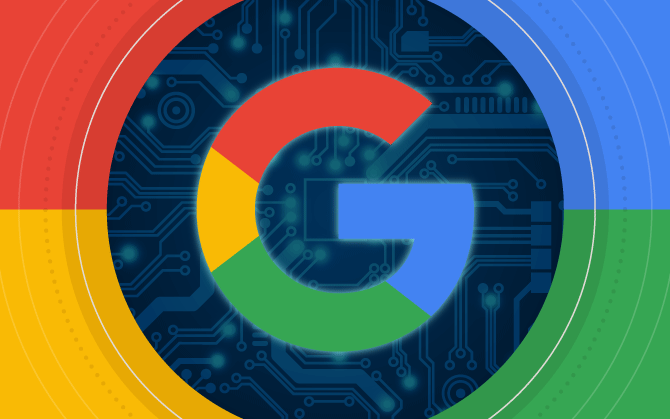
BERT: Learn about Google’s new algorithm and what it means for SERP
Learn about BERT, Google’s new artificial intelligence technology that promises to revolutionize search results!

What will we see in this post
You probably haven’t heard about BERT, the new Google artificial intelligence system. But very soon, it will affect the results of many searches made on the service and your business’ online strategy.
Google often implements changes to its search engine. Some of these changes are subtle, while others turn the SEO and digital marketing upside down.
Now, the company is preparing to launch its biggest change in five years, since it introduced RankBrain. It is estimated that the new algorithm will affect 1 in 10 result pages, drastically changing which pages are ranked for these searches.
BERT was launched in late October of this year for searches in English, and will soon be available for the remaining users.
Keep reading in order to learn more details about Google BERT, how it works, its impact on SERP, and the biggest changes that SEO will undergo from now on.
What is the Google BERT and how does it work?
BERT is an acronym for Bidirectional Encoder Representations from Transformers. The name sounds complicated, but the concept is quite easy to understand.
It’s a neural network technology created to improve natural language processing. In other words, it helps Google robots to understand language in a more human-like manner.
The platform currently uses an indexing and tracking system that basically takes into account the keywords used by users. However, with BERT, Google will now take into account the sentence’s sequence and context.
To make it even easier to understand:
The current model takes into account the order of the terms in the sentence users enter to be searched. With BERT, Google will be able to analyze the entire sentence, taking into account the context of one word from the terms that come before and after it (thus the term “bidirectional” in its name).
It’s as if, from now on, Google can understand the user’s intention when performing a search.
BERT in action
In their official announcement of the technology, Google presented a few examples of BERT’s impact on SERP.
The first one shows two results for the search, “2019 brazil traveler to USA need a visa”.

In this sentence, the preposition “to” indicates that the user wants to know if a Brazilian tourist needs a visa to travel to the United States.
Before, Google simply didn’t understand this relationship and would display results about North American citizens traveling to Brazil. The exact opposite of what the user wanted to search.
Another example of the technology in action shows the search results for “can you get medicine for someone pharmacy”.

The user in the example above probably wanted to know if there would be any problem in buying a prescription drug without the presence of the patient. But the results don’t seem to be aligned with the question.
The search engine currently selects keywords such as “medicine” and “pharmacy”, completely ignoring the context. This way, the results will be about how to obtain a prescription, for example.
With BERT on the other hand, the entire sequence of words is taken into consideration and the results are completely changed. The first position for example, informs if it’s possible or not to pick up prescription drugs for another person.
In other words, now Google is able to understand the intention behind a search more accurately. And thus, can provide results that are more accurate.
And what about RankBrain?
For those who don’t know, RankBrain was the first method based on Artificial Intelligence developed by Google to better understand the searches performed by users.
By analyzing the terms used for the search, the content of indexed websites and user behavior in clicks on the response page, RankBrain attempts to understand what users mean with the search and what they really want.
In addition, this algorithm also adjusts the results according to each page’s performance in similar searches performed previously.
As you can see, RankBrain’s goal is very similar to BERT’s, which is to understand the user’s intention and provide results that are more accurate.
Despite this, both technologies don’t exclude each other. On the contrary, they are complementary.
This way, BERT can operate as a supplementary method to analyze and understand content and searches.
Thus, depending on the situation, Google can use RankBrain, BERT or a combination of both to provide the best results possible for users.
The impacts of BERT on other Google products
Google’s announcement of BERT refers only to the company’s search engine. However, other products will probably be affected by the new technology.
One of them is the Google Assistant. When a search is made with the virtual assistant returns any Featured Snippets or search results, these results may be influenced by BERT.
In addition, it is expected that platforms such as YouTube and Google Maps will also be impacted, since both are widely used to search for content on the internet.
How to optimize content for BERT
And now, the million-dollar question: How do you optimize your pages and content for BERT? Is it even possible?
The answer was provided by Danny Sullivan, a Google spokesperson for search-related subjects:
There’s nothing to optimize for with BERT, nor anything for anyone to be rethinking. The fundamentals of us seeking to reward great content remain unchanged.
— Danny Sullivan (@dannysullivan) October 28, 2019
Over the years, Google’s advice to rank well in SERP has been to create relevant and quality content that answer users’ questions.
And since BERT was created to interpret the intention behind each search, it makes sense that offering quality content will continue being Google’s main recommendation.
Now, content producers can worry more about writing as best as possible, instead of focusing on writing for machines and algorithms.
Now that you’re familiar with the key innovations of BERT, Google’s new artificial intelligence technology, you can take the opportunity to learn more about the daily SEO routine, with all of the main tasks you need to rank at the top of SERP.




